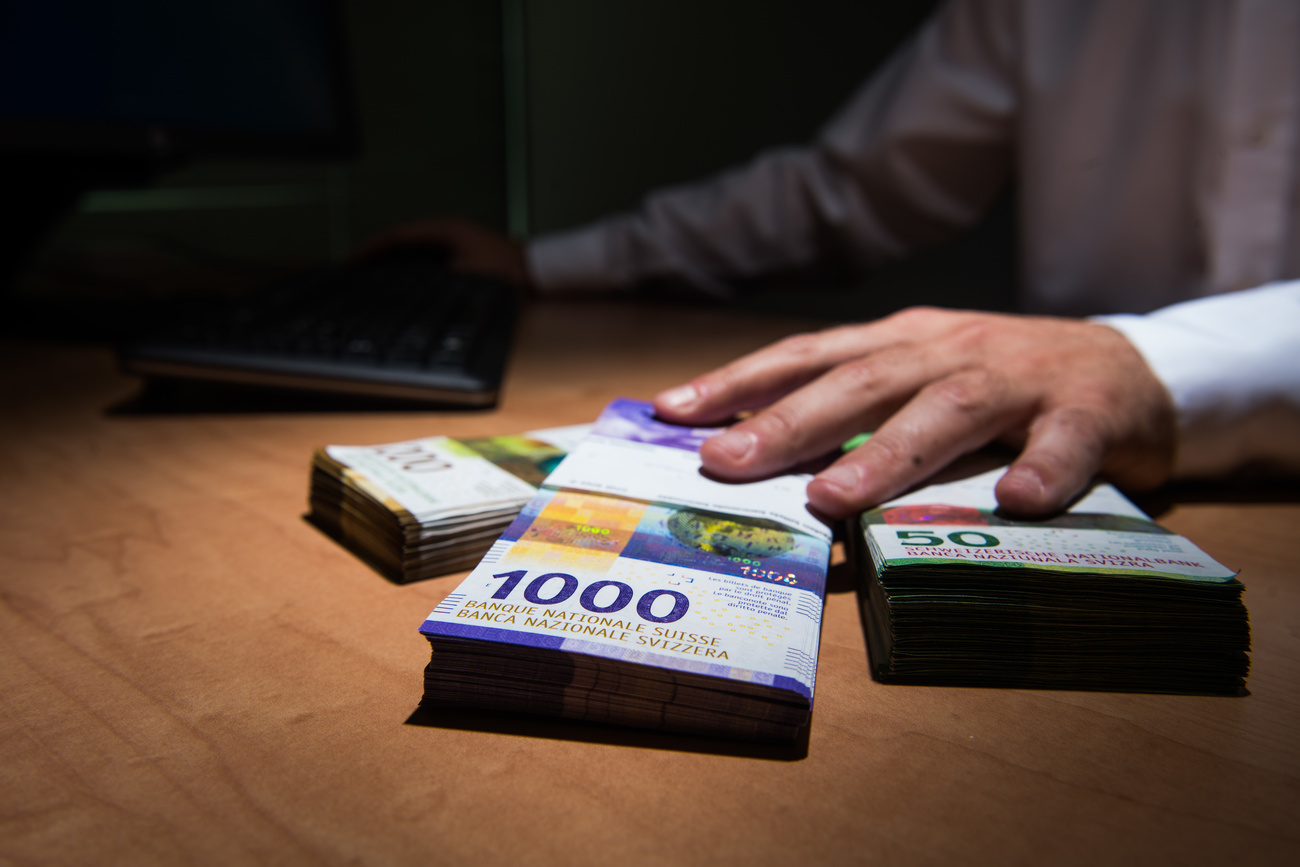
Corruption study: one in three Swiss companies pays bribes abroad

According to a recent study, one in three Swiss companies admits paying bribes abroad, with more than half of them facing demands for under-the-table payments in their foreign business. The study reveals that such bribes are even more common than ten years ago.
Despite increased anti-corruption measures, the illegal practice of informal payments or “gifts” in foreign business remains widespread, Transparency International Switzerland wrote in a press release on Wednesday. This finding is the result of a joint study by the University of Applied Sciences of the Grisons and Transparency International Switzerland.
The online survey of 539 Swiss companies operating abroad, spanning various sizes and sectors, revealed that 52% face demands for under-the-table payments. Of these, 63% admit making such payments, according to the survey.
On average, 5.6% of turnover in the country in question is spent on hidden payments. This phenomenon affects small and medium-sized enterprises (SMEs) as much as multinational companies. Companies with production facilities, joint ventures or equity investments show a higher willingness to pay.
Public sector
Corruption is widespread in both the public and private sectors. Over 70% of the companies concerned stated that gratuities were expected when contracts were awarded by other companies, while 60% mentioned this in connection with public contracts. These “expectations” sometimes come from the police or customs offices.
Around a quarter of respondents reported losing a public or private contract to a competitor perceived to be corrupt in the last two years. This was particularly evident in Italy, China, Russia and Germany.
Almost one in seven companies surveyed refrained from entering a market due to the risk of corruption. Russia, Iran, Belarus and Ukraine were mentioned most frequently in this context. Additionally, 12% of respondents had exited a market in the last five years for the same reason, with Russia, Iran, Azerbaijan, Angola and China being mentioned most frequently.
Inadequate prevention
Up until the early 2000s, bribes had hardly any consequences for companies based in Switzerland: they were even considered necessary for certain foreign markets and could be deducted from tax. However, in the last 20 years the paradigm and the legal framework have changed.
As a result, prevention strategies, such as written documentation of all business transactions, have been introduced. Companies can also resort to disciplinary or legal measures, or impose contractual obligations on third parties.
Nevertheless, the survey showed a trend towards more corruption offences. The authors explain that this could be partly attributed to the new methodology compared to previous surveys.
Few court cases
There are still gaps in prevention: almost one in four companies does not have any basic measures in place, such as binding guidelines or due diligence checks by authorised third parties. Half of the companies have neither training programmes for employees nor an independent whistleblower office.
According to the authors of the study, criminal prosecution of offending companies is rare. In the last 20 years, only 11 Swiss companies have been convicted for failing to prevent serious criminal offences.
Translated from German by DeepL/sp
This news story has been written and carefully fact-checked by an external editorial team. At SWI swissinfo.ch we select the most relevant news for an international audience and use automatic translation tools such as DeepL to translate it into English. Providing you with automatically translated news gives us the time to write more in-depth articles. You can find them here.
If you want to know more about how we work, have a look here, and if you have feedback on this news story please write to english@swissinfo.ch.

In compliance with the JTI standards
More: SWI swissinfo.ch certified by the Journalism Trust Initiative





























You can find an overview of ongoing debates with our journalists here . Please join us!
If you want to start a conversation about a topic raised in this article or want to report factual errors, email us at english@swissinfo.ch.